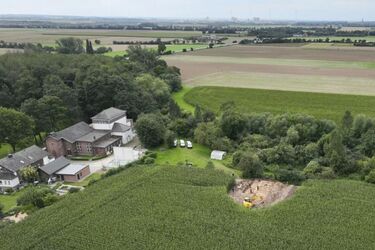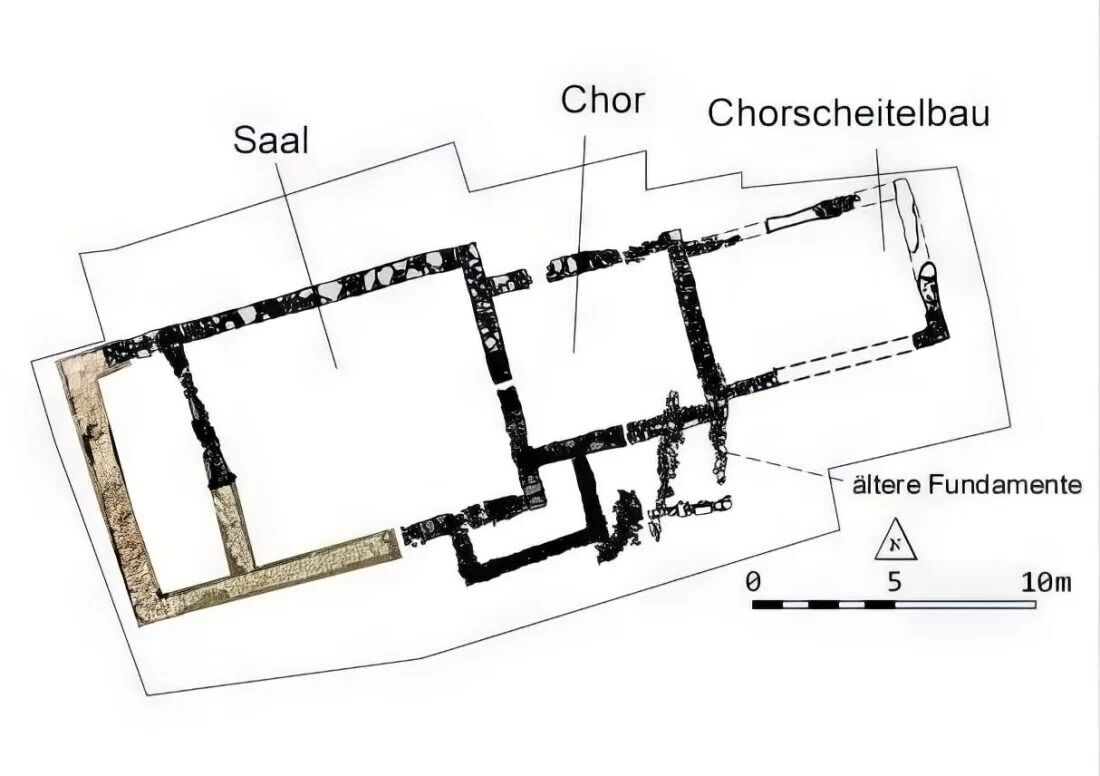Archaeologists find remains of unique 10th century church in Germany (photo)

In Germany, during excavations near Erwitt-Eickel, archaeologists found the remains of an ancient church built of stone. The discovery dates back to the 10th century.
According to Arkeonews, in 2021, a volunteer drew the attention of LWL experts to a concentration of limestone fragments on a stream meadow east of Erwitte. In the same year, the foundations of a stone building were discovered during an inspection of the site.

After further excavations in 2022 and 2023, it became clear that these are the last remains of a church with a floor plan that is unique to Westphalia.
Read also: A 1700-year-old tunnel dug in a mountain in Turkey (photo)
"A particular surprise of the discovery is that there are no written sources about the church. The earliest reports of settlements around Bahiaue date back to the 11th century. However, it only mentions the farm "Ostham", not the church," the publication writes.

Archaeologists said the church was rebuilt here after a much older manor house was demolished.
"In order to more accurately classify and date the church building, we rely not only on the findings but also on scientific results," said Professor Michael Baales, head of the Olpe branch.
According to him, the ceramic finds, the first dating and comparisons with other floor plans currently show that the building dates back to around 900 AD.
The newly discovered church consists of a large hall measuring almost 9 meters, which is adjoined by a rectangular choir to the east. Unusual is an additional room to the east of the choir, the so-called choir loft. This room could have been planned as a chapel or burial place.
As a reminder, in Spain, a worker found rare artifacts that are 2500 years old among water pipes.
If you want to get the latest news about the war and events in Ukraine, subscribe to our Telegram channel!
